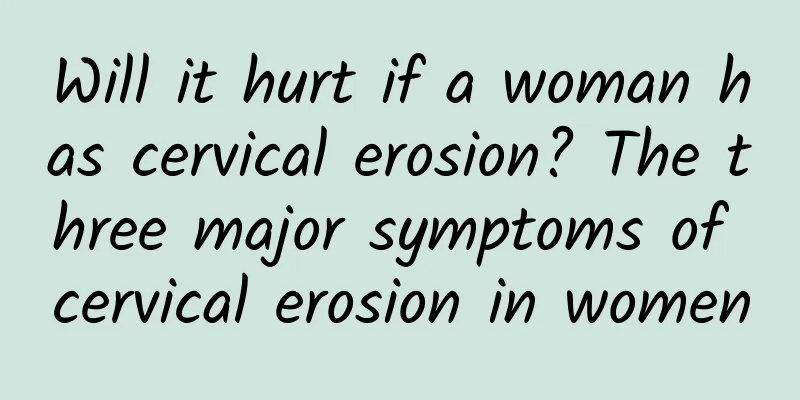Postmenopause can lead to weight gain. Supplementing estrogen and plant protein

|
Menopause is a stage in women's growth, but many women develop menopausal syndrome due to the decline of estrogen in their bodies. They feel depressed when they see their abdomen and legs gradually gaining weight and their figure getting out of shape. Nutritionists say that the average weight of menopausal women will increase by 2.6 kg within three years of menopause. It is recommended to adjust the diet, reduce the total daily calorie intake, replace animal protein with plant protein, supplement estrogen, and stimulate fat decomposition. Estrogen decline, menopause 3 years on average 2.6 kg weight gain Zhao Jiarong, a nutritionist at Guangtian General Hospital, said that after the estrogen level of menopausal women decreases, the activity of enzymes that break down fat in the body will also decrease, causing fat to accumulate in the abdomen and thighs. Generally speaking, women will gain an average of 2.6 kg in weight within 3 years after menopause. However, if they do not control their diet, they are likely to gain 1 kg of weight each year after menopause, which means a total weight gain of 3 kg in 3 years. Menopausal obesity is prone to three high diseases For women who are particular about their weight and beauty, 3 kilograms of fat will affect their body shape and is a big concern, but what is more noteworthy is the potential risk of disease. Nutritionist Zhao Jiarong reminds that menopausal women need to pay special attention to the problem of abdominal obesity, because it can cause metabolic syndrome and increase the likelihood of chronic diseases such as high blood pressure, high blood sugar, and high blood lipids. There are principles for exercise and diet in menopause weight loss For women who gain weight during menopause, the way to lose weight should be slightly different from that of ordinary young people. Because the body's metabolic capacity has deteriorated, exercise should be maintained for 30 to 60 minutes a day to help burn calories. The exercise method can be low-intensity brisk walking or gymnastics. As for diet, nutritionists provide the following 4 adjustment principles to control the total calorie intake, supplement estrogen through plant protein, activate enzymes to break down fat, and achieve healthy weight loss results. 1. Reduce calorie intake Based on the estimate of a woman who is 160 cm tall and has an ideal weight, the recommended daily calorie intake is 1,800 kcal. However, women's metabolism deteriorates after menopause, and it is difficult for the body to break down and consume fat. It is recommended that women with the same conditions should reduce their calorie intake by 200 kcal after menopause, and the recommended daily calorie intake is only 1,600 kcal. 2. Increase the proportion of plant protein Protein is essential for human nutrition, but some plant proteins contain nutrients such as soy isoflavones and lignans, which can replenish the lack of estrogen during menopause and improve menopausal syndrome and weight gain. Soy isoflavones are commonly found in foods such as soybeans and soy beans; lignans are found in foods such as lentils, cereals, wheat, sunflower seeds and onions. Nutritionist Zhao Jiarong said that the daily intake of plant protein per person is 25-50 grams, of which the recommended amount of soy isoflavones is 40 mg, which can be increased to 80 mg for menopausal women. In principle, the chance of getting an excess of this nutrient from food is not high, so people do not need to worry about eating more. However, if it is extracted and concentrated soy isoflavones or lignans health foods, one must be careful about the dosage issue. 3. Less oil and more fruits and vegetables Fried foods, pan-fried foods, and other high-fat foods easily accumulate calories and increase the risk of gynecological cancer. It is recommended to keep the diet as light as possible and consume more fruits and vegetables with antioxidant properties to eliminate free radicals and reduce the incidence of disease. Each meal should include at least half a bowl of vegetables (about 100 calories). The more variety and color, the better. 4. Take more calcium Menopausal women lose calcium faster and are more likely to suffer from osteoporosis. Although it is not closely related to weight, it is still necessary to pay attention to avoid increasing the risk of fractures. |
<<: Are you a Matcha girl? 6 benefits of matcha that you must drink
>>: Jogging makes you lose weight! 2 ways to burn fat: high knee and high leg raises
Recommend
Acute pelvic inflammatory disease recovery
Many women feel uncomfortable when they hear the ...
What are the reasons why threatened abortion is difficult to cure?
As women are under increasing pressure, many wome...
What are the serious consequences of pelvic peritonitis?
The appearance of pelvic peritonitis worries pati...
Get rid of back pain and slim belly! Fitness coaches recommend 3 chair exercises to strengthen core muscles
Are you also a sedentary person? People who sit f...
How to prevent chocolate cysts?
How to prevent chocolate cysts? You may not know ...
Treatment of uterine perforation as a complication of artificial abortion
Artificial abortion refers to the termination of ...
What to do if you have irregular menstruation after an artificial abortion? If you have irregular menstruation after an artificial abortion, you should refrain from sexual intercourse within one month.
1. Causes of irregular menstruation after artific...
Effective folk remedies for treating hydatidiform mole
Effective remedies for treating hydatidiform mole...
Ensuring that patients rest is an important consideration for chronic cervicitis
Due to the high incidence of chronic cervicitis, ...
Why does breast pain occur before menstruation?
Breast pain is a very common phenomenon in women....
How does Traditional Chinese Medicine treat congenital absence of vagina?
There are still many women suffering from congeni...
What symptoms do patients with adnexitis usually experience?
Among the gynecological diseases, adnexitis is on...
Can early threatened abortion be cured?
Threatened abortion is a symptom that should not ...
Eliminate the belly tummy! Exercises you can do in the office
While female friends can enjoy fun outdoor activi...
How to take care of bacterial vaginosis more safely
Bacterial vaginosis is a trouble that many women ...









